Completed evaluations
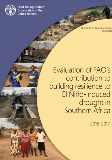
Evaluation of FAO’s contribution to building resilience to El Niño-induced drought in Southern Africa 2016-2017
07/01/2020
During the 2015–2016 agricultural season, Southern Africa experienced intense drought due to one of the strongest El Niño events in 50 years. With 70 percent of the population reliant on agriculture, El Niño had a direct impact on food security and caused loss of income across crop and livestock value chains.
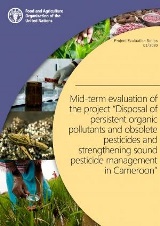
Mid-term evaluation of the project “Disposal of persistent organic pollutants and obsolete pesticides and strengthening sound pesticide management in Cameroon”
01/01/2020
Every year, large quantities of pesticides are used in Cameroon for agricultural production. However, without proper management of pesticides and associated waste, accumulation of stocks of obsolete pesticides has led to contamination of sites.
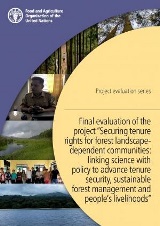
Final evaluation of the project “Securing tenure rights for forest landscape-dependent communities: linking science with policy to advance tenure security, sustainable forest management and people’s livelihoods”
16/12/2019
Unclear tenure and conflicts are the major factors in deforestation of forest areas targeted by the project implemented by FAO, aimed at securing tenure rights for forest landscape-dependent communities: linking science with policy to advance tenure security, sustainable forest Management and people’s livelihoods.
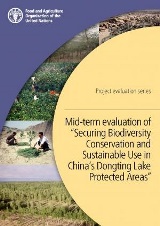
Mid-term evaluation of “Securing Biodiversity Conservation and Sustainable Use in China's Dongting Lake Protected Areas”
16/12/2019
The Dongting Wetlands is China’s second-largest freshwater lake and one of the 200 key global ecozones. Its high biodiversity serves as an important ecosystem for over 120 bird species and many endangered species. It plays an important socioeconomic role in the area as nearly 16 million people live around the lake.
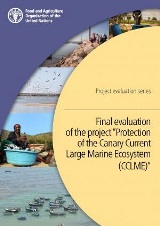
Final evaluation of the project “Protection of the Canary Current Large Marine Ecosystem (CCLME)”
15/12/2019
The project "Protection of the Canary Current Large Marine Ecosystem (CCLME) " was a regional initiative to set-forth governance reforms, investments and management programmes to help CCLME countries address priority transboundary concerns regarding the reduction of fisheries and related biodiversity and water quality.
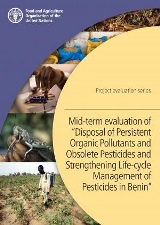
Mid-term evaluation of ''Disposal of Persistent Organic Pollutants and Obsolete Pesticides and Strengthening Life-cycle Management of Pesticides in Benin”
15/12/2019
Inadequate agricultural policies and poorly enforced regulations lead to the accumulation of unused pesticides. In Benin, stockpiles of obsolete pesticides have become a great concern, posing a threat not only to human health and environment, but also to the sustainable development of the region.
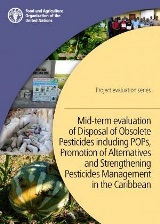
Mid-term evaluation of “Disposal of obsolete pesticides including persistent organic pollutants, promotion of alternatives and strengthening pesticides management in the Caribbean”
09/12/2019
Declines in the sugarcane and banana industries of the Caribbean have resulted in an accumulation of disused pesticides. The adverse effect of agrochemicals, particularly pesticides, on human health and the environment is a global concern. The project was implemented by FAO to promote the sound management of pesticides throughout their life-cycle in the Caribbean region, and reduce the risks they pose.
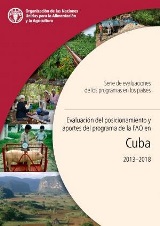
Evaluation of the positioning and contributions of FAO’s programme in Cuba 2013–2018
22/11/2019
Cuba is a mostly urban country that scores highly on human development indicators and meeting the Millennium Development Goals. Several factors, including hurricanes and drought, have limited access to high quality and safe food, however. Agricultural productivity has also been constrained by internal factors and international economic dynamics, meaning 70...
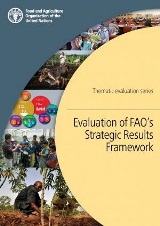
Evaluation of FAO's Strategic Results Framework
30/10/2019
This evaluation of FAO’s Strategic Results Framework was carried out to assess the efficiency of the Results Framework, to assess its effectiveness in supporting the results-based management of FAO’s programme of work as an accountability tool and to identify lessons that can inform the formulation of FAO’s next Strategic Results Framework in 2020.
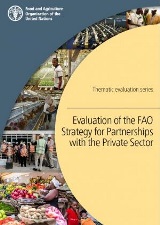
Evaluation of the FAO Strategy for Partnerships with the Private Sector
22/10/2019
FAO adopted its Strategy for Partnerships with the Private Sector in 2013 to promote more private sector involvement in its programmes and operations, responding to calls of Member States.
